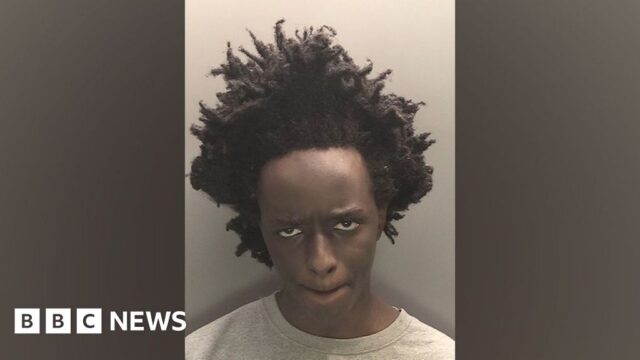Southport killer Axel Rudakubana was referred several times to the government’s Stop counter-terrorism program before the attack because of his general obsession with violence, government sources told the BBC.
On Monday, the 18-year-old admitted to stabbing three girls to death in July last year at a Taylor Swift-themed dance class.
He also pleaded guilty to a series of charges, including the attempted murder of eight children and two adults, the production of a biological toxin, ricin, and the possession of an Al Qaeda training handbook, a terrorism offence.
Despite this, the police have never treated his case as related to terrorism, as he did not appear to follow any ideology, such as Islam or racial hatred, but instead appeared to be motivated by an interest in extreme violence.
After admitting his crimes, the Crown Prosecution Service (CPS) described him as a “young man with a sickening and sustained interest in death and violence” and said he had shown no signs of remorse.
Rudakubana was described as having a volatile character, anger problems and being prone to acting out violently.
He attended Vary Excessive Faculty in Formby, where he began having problems with violence at 12 months 9.
His companions remember that he had an obsession with despotic figures such as Genghis Khan and Adolf Hitler. It is also known that he accessed information about the IRA.
Rudakubana was expelled from school in October 2019, when he was 13 years old, after which he returned to school in December 2019 with a hockey stick and assaulted a student, breaking his wrist. He had to be restrained by a teacher.
Following this, he attended The Acorns Faculty, which provides specialist education for those with additional needs, and then enrolled at Presfield Excessive Faculty & Specialist School.
There he only attended high school for a few days and was largely involved in home visits. The school sometimes asked the police to attend when they visited.
Last August it was revealed that he had a “diagnosis of autism spectrum disorder” and had “been unwilling to leave the house and communicate with family for a period of time.”
Rudakubana called Childline several times as a young teenager and eventually told the service that he was going to bring a knife to school because of racial bullying.
This was one of the incidents that led to him being excluded from Vary Excessive Faculty.
The NSPCC said Rudakubana’s last call to Childline was “serious enough to exceed a threshold”, prompting Childline to inform local authorities of its concerns in 2019.
An NSPCC spokesperson called the attack a tragedy and said it was “important” that any review following the court case study “all the circumstances and reasons that contributed to this horrific attack” to ensure similar tragedies can be stopped in the future. .
Rudakubana was born in Cardiff to Rwandan parents in 2006 and moved to the Southport area in 2013.
He took acting classes at the Pauline Quirk Academy and appeared in a promotional video for BBC Kids in Want in 2018, which he has since said he had no affiliation with.
The BBC removed the video from its websites following the Southport attack.
Neighbors on the street where he and his family lived in Banks, West Lancashire, about 6 miles (9 kilometers) from Southport, told the BBC that police visited the house on several occasions in the months before the Southport attack. .
On the day of the attack, he was caught on a doorbell camera walking outside his family’s home, before taking a taxi to the dance studio where he would carry out the stabbings.
Bebe King, 6, Elsie Dot Stancombe, 7, and Alice Dasilva Aguiar, 9, died.
Rudakubana initially pleaded not guilty after he refused to speak during a hearing, but pleaded guilty on Monday, the first day of his trial.
He is due to be sentenced Thursday and is expected to receive a life sentence.
However, he cannot be sentenced to life in prison for his crimes because he is under 21 years old.





